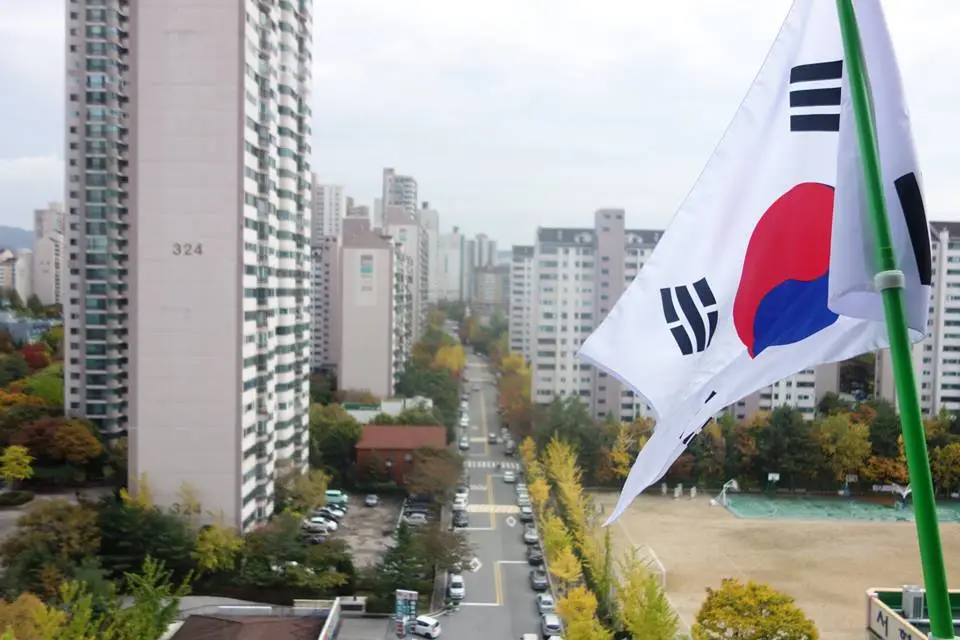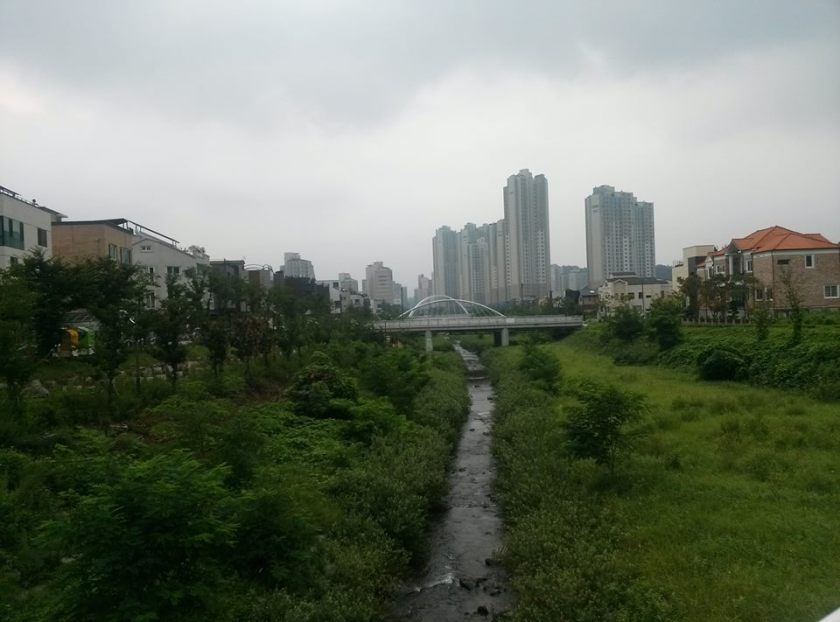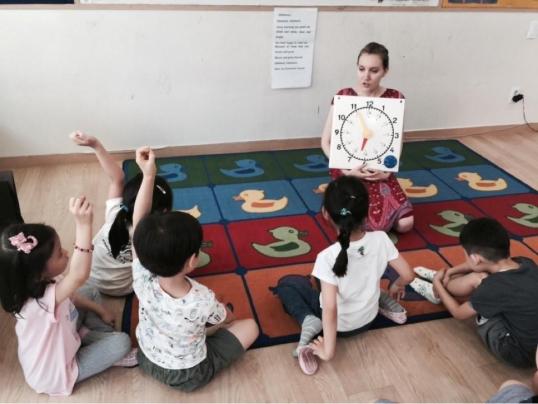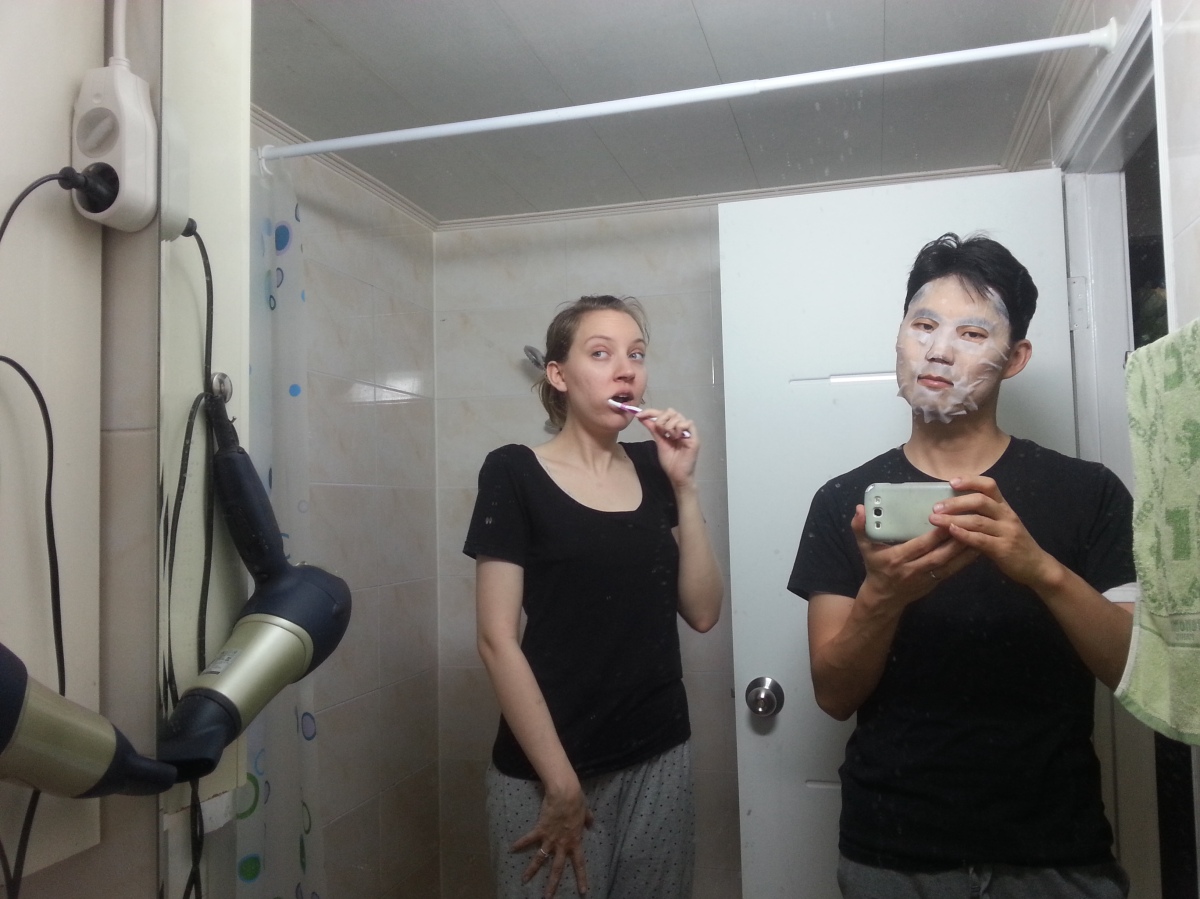It’s been a month now since the news of Otto Warmbier’s horrific fate. I was part distraught, part fascinated by the footage of the sturdy-looking college student breaking down in tears before the North Korean authorities. Where the hell were they going to take him? What was he doing all those months afterwards? No photos exist of him in prison. The only photos that came after that dreaded court sentence are of him in a coma, with a breathing apparatus over his mouth.
A few days later he was dead.
I can understand why a story like this terrifies people – especially Americans – about North Korea. It sounds like a land where those who enter never return, even if they’re supposedly on a guided tour. Like some twilight zone of terror and human trafficking. The mysteriousness that surrounds it makes it all that scarier. It also makes for sensational news stories that people will read.
A question I get a lot is, “Wasn’t it scary to live next to North Korea?” My sister who still lives in South Korea today has also gotten this question from concerned people back in the US. Our mom bears the brunt of it. It’s usually her friends and colleagues who are worried. Sometimes it’s even made her worried. Sometimes.
Isn’t it scary to live next to a country with a blood bathed regime that is constantly threatening to blow you up?
Well, yeah, if you put it that way, it’s a little unnerving. I will admit that reality hung over me at times like a cloud, rumbling just enough to remind me it was there. It was stressful to read American (and British) news and see that North Korea was the headline story. And to tell people, “it’s all okay, nothing will happen” – you have to wonder how much you believe yourself versus how much you are trying to tell yourself, and of course tell them in order to comfort them.
But for the most part, I rarely even thought of North Korea while I lived in South Korea.
Basically it works like this: Life carries on, and you have to have to carry on with it. Your brain has this marvelous capacity to shut off certain imminent fears that you can do absolutely nothing about. You need to be able to wake up in the morning, go to work, have relationships, laugh, go to the movies, solve mundane problems and cook dinner. You have to think about the future and make plans based on what is rational and what is likely. Writing up a will for if you are blown to bits by North Korea is not as rational as saving money for your next vacation. Because the honest truth is, an attack from North Korea, however possible, is not likely.
I’m no whiz at foreign affairs, but you learn stuff by default, by osmosis, when you’re living in a certain country that concerns such affairs. You learn by hearing and observing what your South Korean colleagues are saying (or not saying). You find yourself studying the issue without realizing it because it’s of natural interest to you. You talk to some people in the US military and you get a feel for what’s going on. Not expert knowledge, but at least a feel.
And this is basically the answer to the “Aren’t-You-Scared-Of-North-Korea” question I’ve come up with over the last 5 years, of living in South Korea and in the US since:
If North Korea attacks the US or vice versa, there will be an ugly war and probably millions of deaths. No one wants that. So there will be threats, there will be talk, but actual action is unlikely.
I know, it’s way oversimplified. I could go into more detail to explain how and what I mean by that – I could go into the dynamics that China and Japan play, or the shadowy world of North Korean politics. But like I said, I’m not an expert at all and that’s stuff you can find out for yourself if you care enough to research. This is simply the most logical conclusion I’ve come to that I have at the ready for when people ask me. Because they keep asking. I lived in South Korea, but in a lot of ways North Korea is more famous. Infamous. Oh well.
South Koreans, to put it frankly, are really too enmeshed in their own lives to seem bothered by the North. And they’re not enmeshed in trivial stuff, either. South Korean politics are pretty controversial and there was way more outrage about President Park Gun Hye and all her crooked deeds than there ever was about Fat Boy Kim. South Koreans do care about their neighbors across the border, but they seem to care way more about their own quality of life, political rights and immediate problems. In my 4.5 years in South Korea I don’t recall a single South Korean person bringing up the situation with North Korea.
You have to wonder, though: Even though everyone is carrying on like life is normal, are they really not scared deep down?
So I have a confession to make. A year or two ago I got on Quora (always a bad idea if you’re not an professional at something) and I answered a question that went something like this: “Are South Korean people afraid of an attack by North Korea?”
I thought I had this one in the bag. I lived in South Korea, surely that gave me street cred, right? So rather arrogantly, without thinking, I wrote something like this: “No one in South Korea is worried about North Korea. They are too busy with their own lives!” I committed the cardinal sin of using an absolute statement.
A couple days went by, and a Quora user with equal street cred and a much more genteel background got on and called me out on this. “That is simply not true, how can you say no one cares or is worried…” he responded. I got a little dressing-down that day, in professional Quora-style. I made the most dignified acknowledgment I could and thought twice ever after about every comment I made in the public sphere.
Of course that person had a point: how could I know what all South Koreans were thinking deep inside? How could I know that any of them weren’t scared?
I would have to meet all 50 million South Koreans to answer that question accurately. I have assume that some of them do have worries. In the end, I can only speak from my own experience, and my experience – for what it’s worth – is that the South Koreans I knew were too busy with their own personal lives and messed up politics too worry about North Korea that much. If they did worry, they never talked about it. Not with me, anyway.
In fact, Yun Ho was less worried about North Korea than I was. We started dating in spring of 2013. Shortly afterwards the joint US-South Korea military training procedures began and that year the tensions were high. Every day BBC was featuring stories about the Dear Leader’s wrath and the regime’s hissy fits and threats of, “You had better stop this or else-!”
It was getting to the point that the US government (overbearingly protective as usual) started suggesting that its citizens consider evacuating in case of an attack. I was distraught at the idea of leaving Yun after we had just started dating. I was even more distraught at the idea of him putting on his uniform and going into the reserve troops to fight. It sort of became this romantic, World War II situation that I was imagining myself a part of – now that I look at it in hindsight.
“Nothing’s going to happen,” Yun told me patiently. “This sort of thing happens all the time. There’s a big to-do, but nothing actually happens.”
And he was right. Nothing did happen. I and my jittery fellow expats calmed down and got used to the routine. Years passed and the joint military training started up again each spring. More threats. More talk of nuclear stuff. The factory in Kaesong shut down, DMZ tours would be suspended from time to time but otherwise, everything stayed the same. Yun was much more concerned about democracy in Seoul than in Pyongyang. The South may look like a utopian paradise compared to the North, but beneath the shiny veneer is a lot of social and political ugliness. I got familiar with that ugliness as time went on and the problems of South Korea and my own personal life were at the forefront of my consciousness. I didn’t have time to also worry about North Korea.
Of course, that is still no guarantee that North Korea will not do something horrific. They could. Deep down, every South Korean knows this. Every able South Korean male has to commit to a minimum of two year’s military service to help the country prepare in case such an attack should happen. Above all, the South Korean soldiers are aware of the situation and they, if no one else, have to think about it. It all goes back to that survive and thrive instinct – life goes on. A bomb may go off but you can’t let that stop you from biking along the Han River or heading out the store for more kimchi, or getting married or cramming for the college entrance exam or hanging out in a game café with your friends. Your brain knows how to be logical about this stuff, even if you don’t. You will go through the motions without even realizing it.
Over ten years ago I worked in a candy store. One day an Israeli couple came in. I was picking their brains and asking all about Israel and whether it was safe to go.
“Oh not right now!” the guy said. “Way too crazy right now.”
“Oh,” I said, a little disheartened. “How about a few months from now?”
“More like, two weeks from now.”
“But what about you two,” I pressed. “Aren’t you scared of the danger?”
They looked at each other and smiled. “No problem for us,” he told me. “You come visit in two weeks, but for us, it’s no big deal. We’re used to this shit.”
Now that I’ve lived in South Korea I think I understand what that couple was talking about. Israel is a dicier place than Korea, but the point remains. Things usually look worse from the outside than they do on the inside. And even though there still is a real threat hanging overhead you have to carry on for sanity’s sake. You get used to it.











